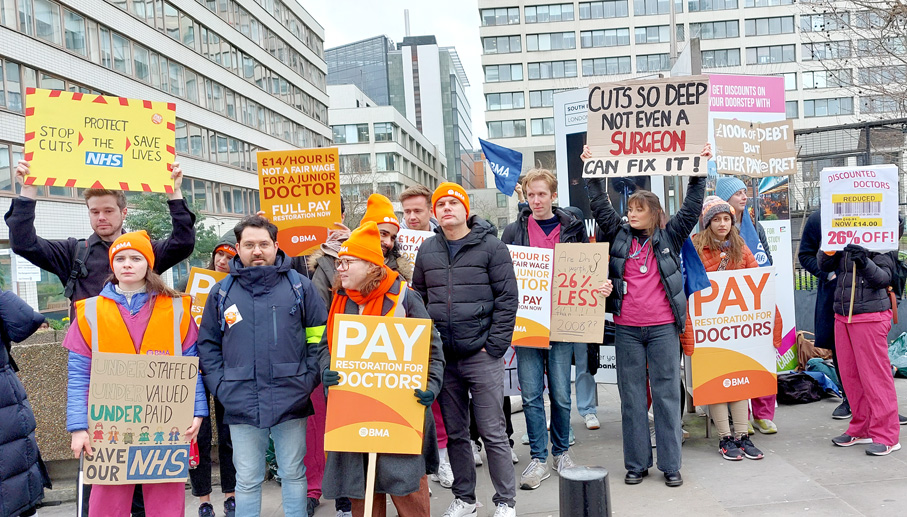THE British Medical Association is warning that insufficient government funding for medical students in England for their lengthy degrees is pushing many into financial hardship.
A BMA survey published yesterday of more than 3,500 medical students shows that 43% have considered leaving or pausing their course due to financial pressures.
The survey found that medical students across all years are struggling to cover even their basic living costs:
- 62% spent less on essentials, such as food or heating;
- Nearly three quarters asked their parents or family for additional financial support;
- Over two fifths used their overdraft to cover living costs;
- Over 500 respondents accessed hardship or emergency university funds;
- One in ten took out a credit card or loan to cover living costs;
- Over one hundred respondents used food banks.
The BMA said: ‘The situation is even more dire for undergraduate students from their fifth year and post-graduate students from their second year when they transition from full student finance to NHS bursary funding. This leaves them thousands of pounds worse off.
‘The survey reveals that for these students in receipt of reduced student finance maintenance and the NHS bursary, nine out of ten felt that funding available to them doesn’t cover their living costs (hardly or not at all).’
The BMA is calling on the UK government to address the drop in funding faced by medical students by ensuring they have access to full student finance maintenance for the entirety of their course – this is a small ask costing the Treasury £24 million – only 0.12% of Student Finance annual lending.
The BMA is concerned that a failure to address this funding gap limits career options and is a serious barrier to widening participation in medicine, as the fear of financial hardship will be a deterrent for those students who do not have other sources of financial support.
Indeed, the survey found that those who’ve previously received free school meals are more likely to report their finances as extremely detrimental to overall educational attainment and academic performance.
Spearheading the Fix our Finance campaign, the BMA’s medical students’ deputy co-chairs (finance) Henry Budden and Sophie Mitchell, said: ‘It is ludicrous, that at a time when the government is committed to getting the NHS back on its feet and ensuring there is a strong medical workforce to care for patients, medical students that have worked hard to earn a place on their course are being met with these difficult financial barriers.
‘Medicine is longer than many other degrees for good reason; because we want to ensure doctors working in the NHS have the best possible training.
It is only right then that they should receive the appropriate funding to see them through the entirety of their course.
‘The stories from medical students who are worried about how they will manage to pay their rent or cover basics such as food, and those who are burning themselves out trying to balance multiple jobs alongside the demands of a medicine degree are disheartening and unnecessary.’
